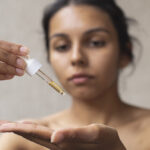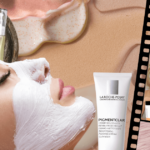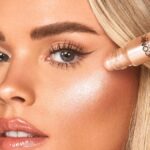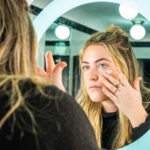When Your Scalp is Itchy, Does That Mean You Have Dandruff or Dry Scalp?
Are you constantly scratching your scalp? Do you notice flakes on your shoulders or hairbrush? It’s possible that you may have dandruff or dry scalp. Both conditions share similar symptoms, but they are not the same. Knowing which one you have can help you better treat the problem.
How Do I Know If I Have Dandruff or Dry Scalp?
Dandruff and dry scalp share symptoms such as a feeling of tightness, dryness, and itching on the scalp. They can also cause general scalp irritation that may lead to scratching, which can cause redness and small sores. However, dandruff and dry scalp are quite different in many ways. If you try to treat a dry scalp with a dandruff solution, you could make the problem worse.
Dandruff or Dry Scalp: What Is Dandruff?
Dandruff, medically termed seborrheic dermatitis, is the result of the renewal process of the skin on your scalp. This process causes younger skin cells to rise to the surface and replace older, dead skin cells. Dead skin cells slough off during regular cleansing and brushing, but if you have dandruff, this process of shedding dead skin cells speeds up.
Researchers aren’t sure what triggers dandruff, but know that it can be caused by sensitivity to certain hair care products, excess production of oil on the scalp, and fungal infections of the scalp. The fungus Malassezia globosa is a major culprit in causing dandruff. It’s naturally found on everyone’s scalp, but in those with dandruff, there is often too much of it. An oily scalp can trigger excessive growth of Malassezia globosa, which in turn, can cause dead skin cells to shed faster than normal, resulting in dandruff.
Dandruff or Dry Scalp: What Is Dry Scalp?
A dry scalp is similar to dry skin anywhere else on your body. It doesn’t retain enough moisture. Just like dry skin on your arm or leg can cause itching, flaking, and irritation, so too can dry skin on your scalp. Dry scalp may be triggered by excessive hair washing, using harsh hair-care products that strip natural oils from the scalp, an allergic reaction to a product like hair dye, underlying skin conditions like psoriasis, dermatitis, eczema, or sunburn, hormonal changes or conditions, and certain medications.
Those with dry scalps will have a tight-feeling scalp, and may also suffer from dull and frizzy hair.
Dandruff or Dry Scalp: Symptoms of Each
Both dandruff and dry scalp can cause similar symptoms such as irritation, itching, flaking, and scalp redness. Sores can occur along with these symptoms as well, as a result of itching. However, there are some differences between the symptoms of dandruff and dry scalp:
Symptoms of Dandruff:
– Larger and yellow-tinged or oily flakes
– Flakes may fall off in clumps
– Can occur at any time and is likely chronic
– Usually doesn’t get better without targeted treatment
– Caused by an over-production of oil
Symptoms of Dry Scalp:
– Smaller dry flakes
– Flakes may fall off like tiny dust particles
– Usually more common in colder months and drier climates
– Can get better by changing your hair-care habits
– Caused by a lack of oil
Dandruff or Dry Scalp: Can I Have Both?
It is possible to have both dandruff and dry scalp. If your dandruff is caused by an overproduction of fungus, you may also suffer from a dry scalp since the fungus feeds on the oil of the scalp, drying it out.
Dandruff or Dry Scalp: How to Treat It
Treatment for dandruff and dry scalp can be similar in some ways and different in others.
Tips for Treating Dandruff:
– Try over-the-counter dandruff shampoos and treatments. Choose those that are pH balanced and help hydrate the hair and scalp while working to limit the overproduction of oil. Some treatment shampoos can over-dry the scalp, so try to avoid those.
– Consider shampooing more often. You want to get rid of the excess oil on the scalp, so washing more frequently may help. But don’t wash more than once daily.
– Avoid hair-care products with heavy oils. These can feed the fungus and cause even more excessive growth.
– Use a scalp treatment before you shampoo. These can help lift dandruff and control any potential bacteria overgrowth. Some scalp masks are effective this way. They can break down flakes and help control dandruff.
– Eat a healthy diet. Some foods can make dandruff worse, particularly those with added sugars and bad fats, and processed foods.
Tips for Treating Dry Scalp:
– Use moisturizing, nourishing shampoos and conditioners. Look for those with calming ingredients like lavender, chamomile, and peppermint to soothe irritation. Choose gentle, non-irritating shampoos with milder sulfate-free cleansers that won’t strip the scalp of its natural oils. It may also help to shampoo a little less often.
– Restore moisture to the scalp. You can use a natural oil like jojoba to help fight dryness and calm any irritation. Simply apply to the scalp, spread throughout, cover hair, and let sit for 10-30 minutes. We recommend using our Calming Moisture as an overnight mask. Simply rub it into the scalp, put on a hairnet, and go to bed. Rinse in the morning and you’ll notice a softer, more comfortable scalp (and softer hair, too!).
– Mist during the day. If you’re struggling with a burning sensation on your scalp, we recommend our soothing Rescue + Relief Spray. Apply it directly to the affected area and gently rub it in. Use as needed to tame inflammation, reduce redness, and immediately alleviate any feeling of itching.
– Drink more water. Your skin draws moisture from inside your body as well as outside, so if you have a dry scalp, it’s important to make sure you’re drinking enough water throughout the day.
– Use a humidifier in your home. Particularly if you live in a dry climate, a humidifier in your bedroom will help your skin (including your scalp) to retain more moisture overnight.
Conclusion:
Dandruff and dry scalp are two different conditions that share similar symptoms. They require different treatments and approaches. If you are unsure about whether you have dandruff or dry scalp, talk to your dermatologist or hair-care specialist. With the right diagnosis and treatment, you can improve the health of your scalp and hair.











